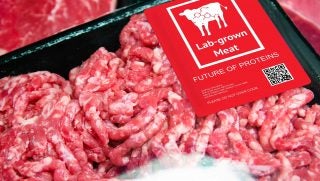As the United States continues to grow in diversity, leadership opportunities in many institutions and industries do not reflect this. And the agriculture industry is not immune to this trend. This is not to say there aren’t some diverse leaders out there, but too often the broader leadership is not embracing diversity.
It’s not enough to simply include diverse people in leadership positions if the value of diversity isn’t reflected in its institution. The pillars of concepts like diversity, inclusion, and equity have been commercialized by many companies, where they claim to take a strong stand for these pillars. Yet there are still many instances where this supposed diverse leadership lets their diverse people down.
The 2021 National FFA Convention sparked lots of controversy over this after there were reports of students in the audience flashing white supremacy hand gestures and chanting disrespectful and divisive statements, while vendors in its shopping mall sold partisan political flags and apparel.
“The chants of “Let’s Go Brandon,” a euphemism for “F*ck Joe Biden,” began at the Opening Session and continued throughout the Convention. Not once did those on the stage who represent the Organization…articulate plainly that this behavior was unacceptable”
— Ag Science Writer (@agsciencewriter) November 4, 2021
While the National FFA Organization and many of its members, teachers, and alumni do not condone this behavior and felt affected by it, there are still many who stand with such actions. This is not to tear down the FFA, because as an alum myself, I know these actions do not reflect everyone in it. But this does bring speculation of its leadership and how its commitment to inclusion is truly reflected.
Because institutions such as these often lack diversity in its leadership, many marginalized people end up joining or forming specialized organizations that meet their needs — to help increase the value of their existence through their identities and to open up opportunities. Examples of this include the New Farmers of America; Minorities in Agriculture, Natural Resources, and Related Sciences (MANRRS); and United Students in Agriculture. While it is beneficial to have these organizations available for marginalized communities in agriculture, the values these groups project are what all agricultural institutions should strive for.
Diversity in leadership brings innovation and new ideas to the institution, helps to better communicate with people of different cultures or languages, and facilitates marketing to a wider audience. More importantly, it is a good way to show people of different demographics that they are respected and are welcome to their spaces.
When an institution shows they value diversity, equity, and inclusion, they can attract a broader range of people. Most institutions are made and led by non-diverse eurocentric people, which makes it hard to connect with diverse people. This leads for many missed opportunities in agriculture for people of color, women, LGBTQ+ people, and disabled people. These opportunities include scholarships, careers, and education.
If left unattended, marginalized people will continue to be disproportionately represented in agriculture and its related fields.
For these reasons, agricultural institutions should strive to be better diverse leaders. It is for these reasons that positions related to managing and promoting diversity in institutions exist. This is something that more companies should invest in doing. While it is great to hire a diverse person for a job because they know what it’s like to be diverse, the most important person for the job is someone who really knows how to communicate and meet the needs of diverse people and can understand where they’re coming from.
Anyone can use marketing and public relations to tell people they care for diversity, equity, and inclusion. But the leadership behind that institution should reflect these values. As leaders in agriculture, we cannot forget that as the nation grows in diversity it is important to show respect and courtesy to people of different upbringings.
The future of agriculture lies in the hands of this constant growing and changing society, so it’s time to act like it.
Saul Reyes serves as the 2022 American Farmland Trust Agriculture Communications Intern at AGDAILY, with a focus on helping to amplify diversity and minority voices in agriculture. An FFA alum, Reyes is a graduate of California State University-Chico and double majored in plant and soil science and multicultural and gender studies, while minoring in intersectional Chicanx/Latinx studies and public relations. He can be found on Twitter @sreyes710.





